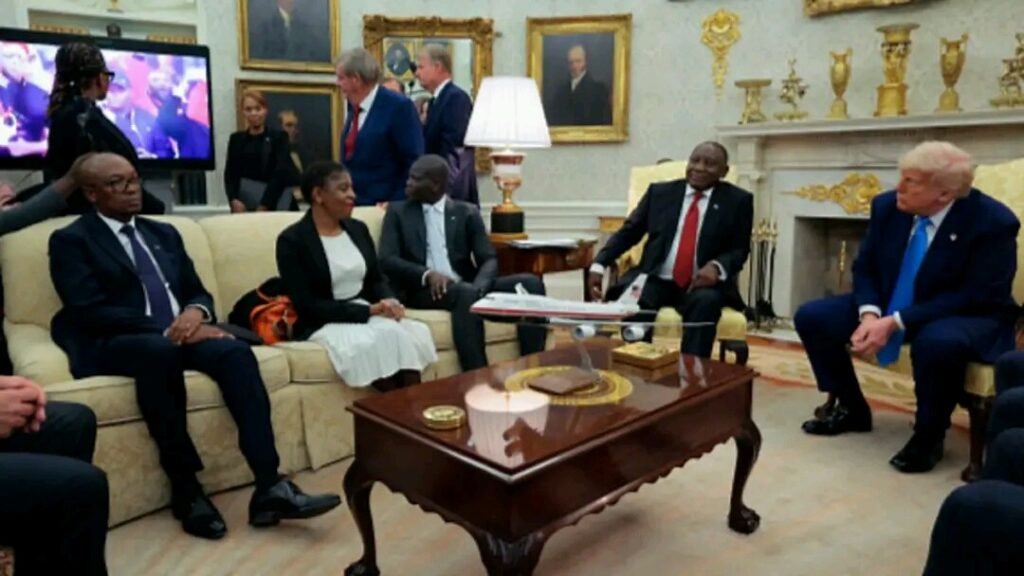In a highly publicized meeting at the White House, South African President Cyril Ramaphosa faced an unexpected confrontation with U.S. President Donald Trump, who reiterated his controversial claims of a “white genocide” occurring in South Africa.
The encounter, which began cordially, quickly escalated as Trump presented a video montage aimed at supporting his allegations.
During the meeting, Ramaphosa emphasized his commitment to improving bilateral relations and addressing misconceptions about race relations in South Africa.

However, the dialogue took a turn when Trump ordered the lights dimmed to showcase videos that he claimed illustrated the supposed crisis facing white farmers in South Africa.
Despite Ramaphosa’s efforts to clarify that the videos referenced opposition politician Julius Malema—a figure expelled from the ruling African National Congress and leader of the Economic Freedom Fighters party—Trump continued to speak over him.
Malema’s controversial song “kill the boer,” which translates to “kill the farmer,” was misrepresented as government policy, despite its lack of official endorsement and Malema’s negligible electoral support.
The meeting was further complicated by responses from Ramaphosa’s Minister of Agriculture, John Steenhuisen, and South African billionaire Johann Rupert, both of whom sought to provide context regarding the realities of race relations and agricultural policies in South Africa. Their interventions, however, failed to sway Trump’s narrative.
This encounter has sparked concerns among South Africans regarding Trump’s approach to foreign policy and his tendency to amplify divisive rhetoric.
The meeting comes on the heels of Trump’s previous controversial interactions with world leaders, raising alarms about the potential implications for U.S.-South Africa relations.
The Trump administration has been vocal in its criticisms of Pretoria, accusing it of systematic persecution against white Afrikaner farmers—a claim that has been widely refuted by South African officials.
This incident adds to a growing list of diplomatic grievances, including cuts to U.S. aid and snubs at international events hosted by South Africa.
As tensions mount, Ramaphosa had hoped this meeting would pave the way for a more constructive dialogue on race relations and foster better understanding between the two nations.
Instead, it appears to have deepened existing rifts and raised questions about future cooperation on critical issues.
With ongoing scrutiny from both domestic and international observers, it remains to be seen how this encounter will affect diplomatic ties and perceptions of U.S. foreign policy in Southern Africa.
Story Written By Adu Kingsley | Kobby Kyei News









